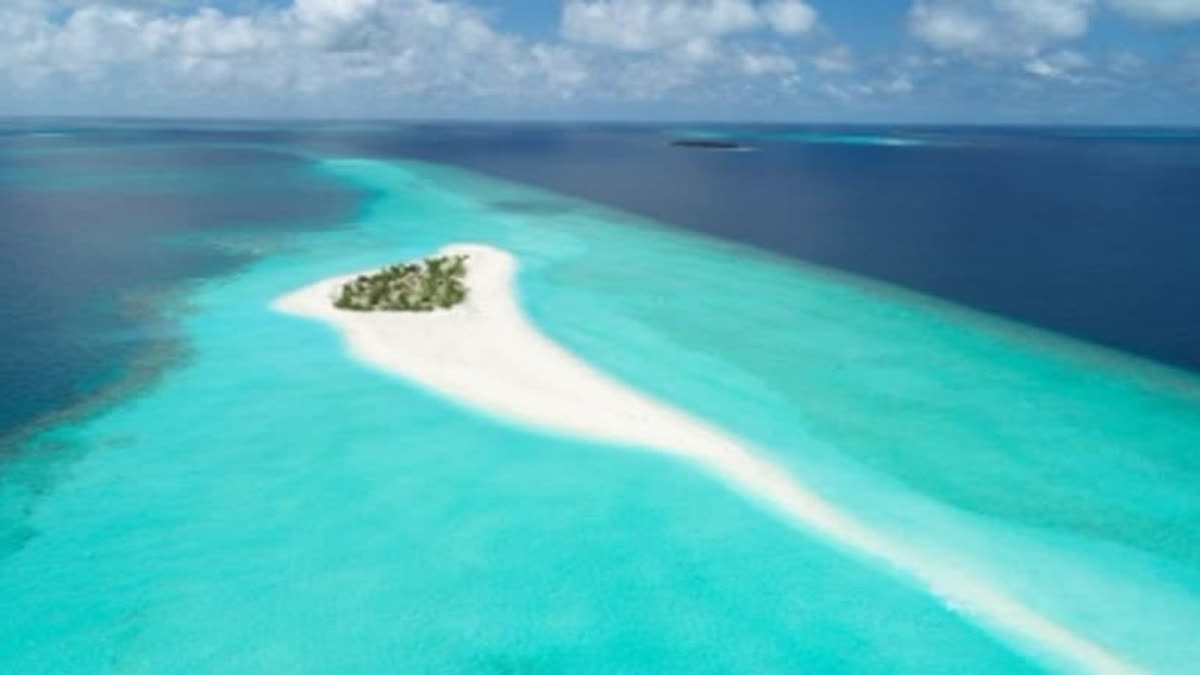New Delhi: Ahead of Maldives President Mohamed Muizzu’s visit to China next week, his first state visit this year, Chinese media is trying to downplay the fact that he is visiting Beijing before New Delhi after assuming office. Muizzu will be departing for China on Sunday evening for nearly a week-long visit. This is a break from the practice, followed by his three immediate democratically elected predecessors, Ibrahim Solih, Abdulla Yameen and Mohamed Nasheed, who had made India the destination of their first state visit after assuming office. In fact, after taking charge in November 2023, Muizzu made Turkey the destination of his first state visit.
In an editorial headlined ‘What does Maldivian president visit’s break with tradition signify?’, the Global Times, the daily English tabloid that serves as the mouthpiece of the Chinese Communist Party, stated that the Maldives need not sour its relationship with India while developing its ties with China. “Many foreign media outlets noticed that Muizzu will break from tradition by visiting China before India,” the editorial read. “In fact, after last year’s Maldivian general elections, much of Indian and Western public opinion immediately labelled Muizzu as ‘pro-China’. From this perspective, it seems that the Maldives’ foreign policy has only two choices: either rely on India or turn to China. These voices completely ignore the fact that the Maldives is an independent sovereign country with legitimate interests and demands.”
The editorial recalled Muizzu’s statement made in the past when he said that the Maldives has no intention of getting involved in the geopolitical struggle between bigger powers and will cooperate with all countries, including India and China. “Indian and Western public opinions always view the Maldives through the lens of the competition between China and India,” it stated. “For them, the Maldives, due to its strategic importance, has become a piece of meat in the struggle between China and India. They have shown a hurt mentality when looking at the development of China-Maldives relations.”
It further stated that in these opinion makers’ view, only when the Maldives complies with India can they feel relieved and “moving closer to other countries is seen as a form of ‘betrayal’”. “Furthermore, in the development of relations between China and the Maldives, there is no requirement for the Maldives to sour relations with India or any other country, without exclusivity and without involving third-party conditions,” the editorial read.
It also cited former Maldives President Ibrahim Solih, who was known for his pro-India stance, as saying that the development of the Maldives’ relations with China and India is not viewed as a zero-sum game. “Indeed, even though a country is deemed ‘pro-China’, it does not necessarily mean it is ‘anti-India’,” the editorial stated.
However, the fact of the matter is that Muizzu had won last year’s presidential election on a pronounced anti-India plank. He ran an ‘India Out’ campaign in which he called for the withdrawal of some Indian military personnel present in his country. These personnel are primarily involved in humanitarian assistance and disaster relief work in the Indian Ocean archipelago nation. However, after assuming office, Muizzu made a formal request to India to withdraw these personnel.
Last month, the Maldives decided not to renew a hydrography agreement with India citing national security concerns and the safeguarding of sensitive information. The hydrographic survey agreement was signed on June 8, 2019, during Prime Minister Narendra Modi’s visit to the Maldives. Under the agreement, India was allowed to conduct a comprehensive study of the island nation’s territorial waters, which includes reefs, lagoons, coastlines, ocean currents and tide levels.
And then again, last week, ahead of the announcement of Muizzu’s visit to China, the Maldives decided to allow a Chinese vessel to enter its territorial waters ostensibly to do research work. This decision came despite pressure from the Indian government and concerns raised by various quarters about the vessel being a “spy vessel”. India has strongly been protesting the repeated visits by Chinese vessels to the waters of the south Indian Ocean, a region New Delhi considers to be under its sphere of influence.
As part of New Delhi’s Neighbourhood First Policy, the Maldives is strategically significant to India because of its location in the Indian Ocean. India and the Maldives share ethnic, linguistic, cultural, religious and commercial links steeped in antiquity and enjoy close, cordial and multi-dimensional relations. However, regime instability in the Maldives since 2008 has posed significant challenges to the India-Maldives relationship, particularly in the political and strategic spheres.
Although India continues to be an important partner of the Maldives, New Delhi cannot afford to be complacent over its position and must remain attentive to the developments in the Maldives. India must play a key role within the Indo-Pacific security space to ensure regional security in South Asia and surrounding maritime boundaries. China’s strategic footprint in India’s neighbourhood has increased. The Maldives has emerged as an important ‘pearl’ in China’s ‘String of Pearls’ construct in South Asia. Given all these, New Delhi will be keenly following Muizzu’s visit to China from January 8 to 12.
- https://www.youtube.com/embed/IP4q09M1HLo?si=BucM5F2V2pEbAtJN
Read more: Maldives cannot do without positive and good relationship with India, says expert



